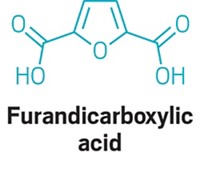Advertisement
Grab your lab coat. Let's get started
Welcome!
Welcome!
Create an account below to get 6 C&EN articles per month, receive newsletters and more - all free.
It seems this is your first time logging in online. Please enter the following information to continue.
As an ACS member you automatically get access to this site. All we need is few more details to create your reading experience.
Not you? Sign in with a different account.
Not you? Sign in with a different account.
ERROR 1
ERROR 1
ERROR 2
ERROR 2
ERROR 2
ERROR 2
ERROR 2
Password and Confirm password must match.
If you have an ACS member number, please enter it here so we can link this account to your membership. (optional)
ERROR 2
ACS values your privacy. By submitting your information, you are gaining access to C&EN and subscribing to our weekly newsletter. We use the information you provide to make your reading experience better, and we will never sell your data to third party members.
Business
Two Companies Eye Renewable Polymers
Green Chemistry: Braskem and Novomer have big plans for polymers based on renewable resources
by Alexander H. Tullo
December 15, 2009
Two firms are taking steps to add new materials to the renewable polymers lexicon. Boston-based Novomer is working with Eastman Kodak to develop the carbon dioxide-based polymer polypropylene carbonate (PPC) for packaging applications. And Braskem is working with enzymes company Novozymes on bio-based polypropylene.
Novomer was founded on the work of Cornell University chemistry professor Geoffrey W. Coates to make polymers out of carbon dioxide. The company is launching an $800,000 project, funded in part by the New York State Energy Research & Development Authority, to manufacture pilot-scale quantities of PPC at a Kodak Specialty Chemicals facility in Rochester, N.Y.
Novomer plans on making enough PPC resins and films that potential customers can test them in packaging applications, according to Mike Slowik, the firm's manager of strategic planning and analysis. Novomer targets its first PPC product, NB-180, as a temporary binder for electronics. Because it breaks down into carbon dioxide and water when exposed to high temperatures, it can be burned off without a trace.
Both NB-180 and the new PPC polymer are made by polymerizing propylene oxide with carbon dioxide using a proprietary catalyst. As a packaging polymer, PPC is touted as offering unique impact resistance, stiffness, and oxygen barrier properties. Slowik claims it could replace polystyrene, polypropylene, and polyvinyl chloride in certain applications. "Over the long run," he says, "we think it can be cost competitive versus some of those petroleum-based materials."
Separately, Braskem has initiated a five-year project with Danish enzymes manufacturer Novozymes to work on a new sugarcane-based route to polypropylene. Braskem has already synthesized polypropylene from sugar-based ethanol.
Braskem is currently constructing a 200,000-metric-ton-per-year plant to make polyethylene from ethanol, to be completed next year. It recently signed contracts to sell the "green" polyethylene to the global packaging giant Tetra Pak (C&EN, Dec. 7, page 22).



Join the conversation
Contact the reporter
Submit a Letter to the Editor for publication
Engage with us on Twitter